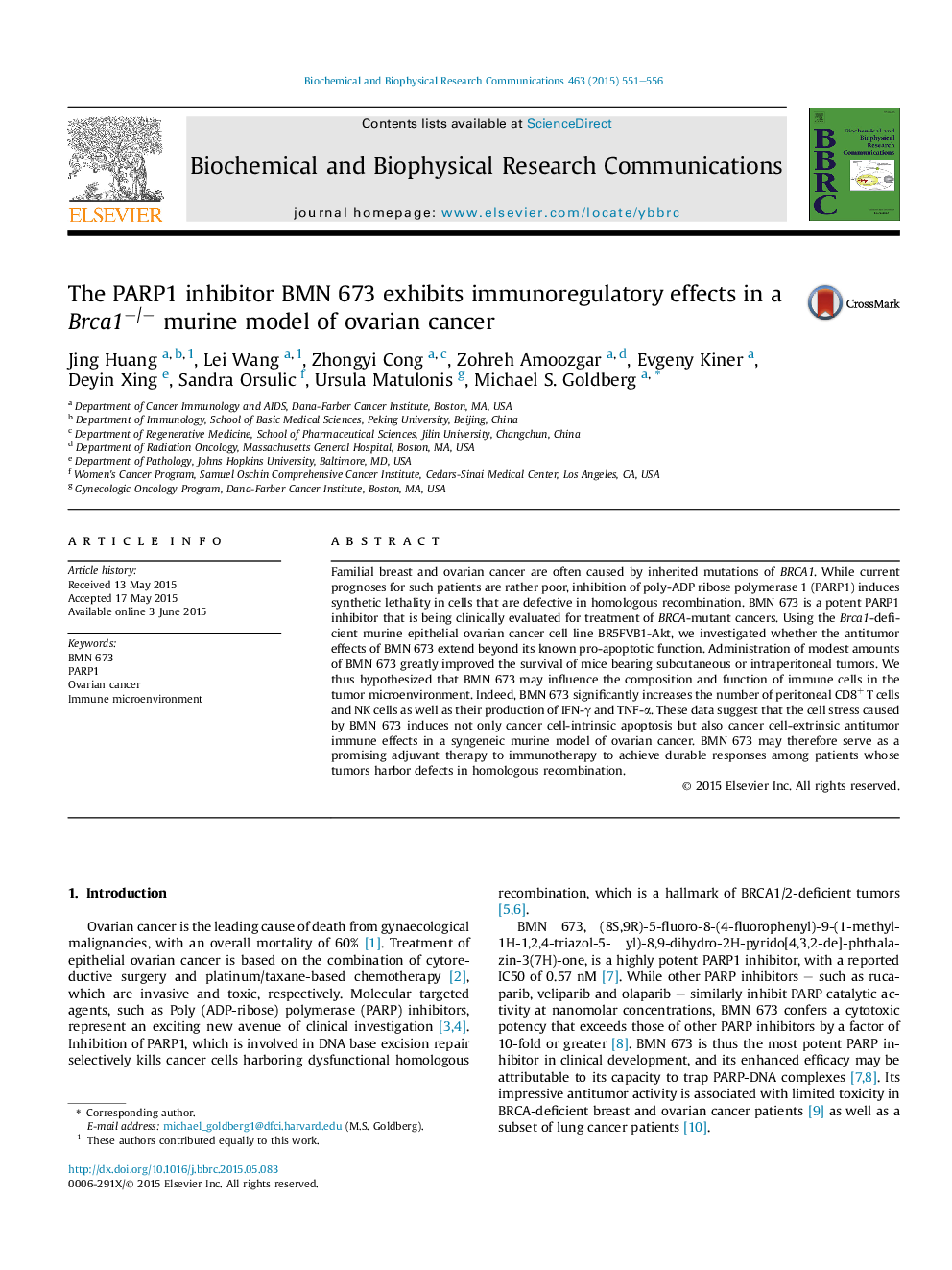| Article ID | Journal | Published Year | Pages | File Type |
|---|---|---|---|---|
| 10749976 | Biochemical and Biophysical Research Communications | 2015 | 6 Pages |
Abstract
Familial breast and ovarian cancer are often caused by inherited mutations of BRCA1. While current prognoses for such patients are rather poor, inhibition of poly-ADP ribose polymerase 1 (PARP1) induces synthetic lethality in cells that are defective in homologous recombination. BMN 673 is a potent PARP1 inhibitor that is being clinically evaluated for treatment of BRCA-mutant cancers. Using the Brca1-deficient murine epithelial ovarian cancer cell line BR5FVB1-Akt, we investigated whether the antitumor effects of BMN 673 extend beyond its known pro-apoptotic function. Administration of modest amounts of BMN 673 greatly improved the survival of mice bearing subcutaneous or intraperitoneal tumors. We thus hypothesized that BMN 673 may influence the composition and function of immune cells in the tumor microenvironment. Indeed, BMN 673 significantly increases the number of peritoneal CD8+ T cells and NK cells as well as their production of IFN-γ and TNF-α. These data suggest that the cell stress caused by BMN 673 induces not only cancer cell-intrinsic apoptosis but also cancer cell-extrinsic antitumor immune effects in a syngeneic murine model of ovarian cancer. BMN 673 may therefore serve as a promising adjuvant therapy to immunotherapy to achieve durable responses among patients whose tumors harbor defects in homologous recombination.
Related Topics
Life Sciences
Biochemistry, Genetics and Molecular Biology
Biochemistry
Authors
Jing Huang, Lei Wang, Zhongyi Cong, Zohreh Amoozgar, Evgeny Kiner, Deyin Xing, Sandra Orsulic, Ursula Matulonis, Michael S. Goldberg,
